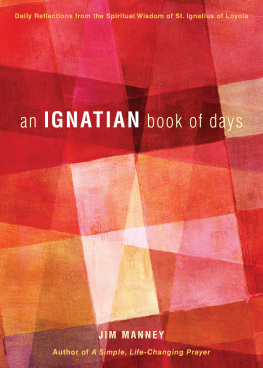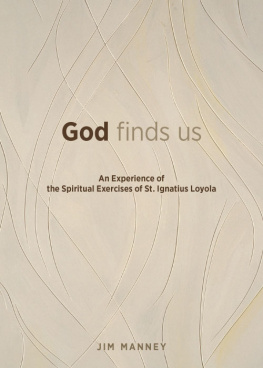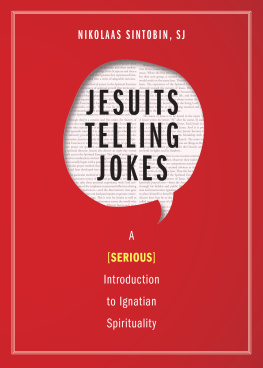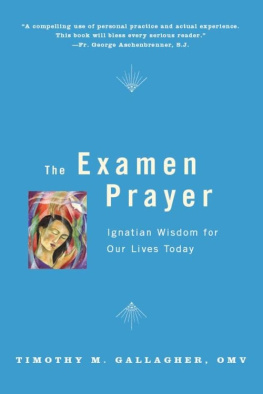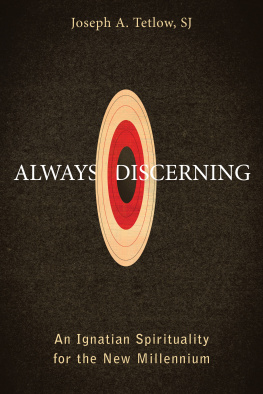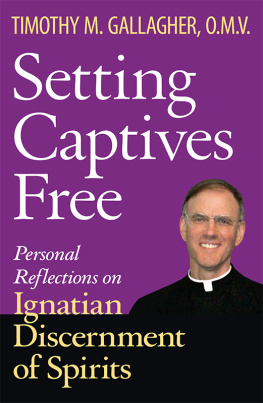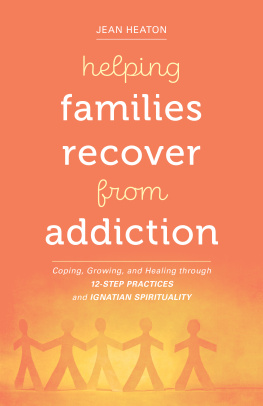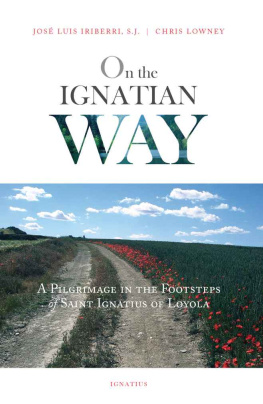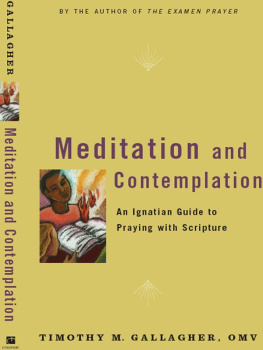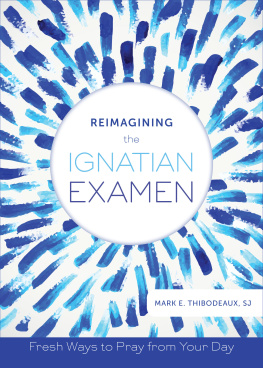You might say theres something inevitable about this book. I am a Jesuit-educated editor and writer who has had a long career in Catholic publishing. Ive come to know Ignatian spirituality well through my work for a Jesuit publishing company. Ive edited many Ignatian texts and written a few. (My favorite is A Simple, Life-Changing Prayer, a little book about Ignatiuss daily examen.) Over the years Ive stuffed hundreds of quotes, excerpts, prayers, Web pages, and links into various folders on my hard drive and in the cloud. So why not pull the best of this material together and publish itthe greatest Ignatian hits, a top-365 list?
But theres also something unexpected about this book. It didnt have to happen, and it certainly didnt have to take the form it did. Its personal. At a certain point (exactly when is hard to pin down), my professional engagement with Ignatian spirituality shifted to a deep personal connection. I grew to love it. I began to see things through an Ignatian lens. My thinking changed. I have different priorities now, a different sense of whats meaningful, a different way of praying, a different way of being in the world. Ive become very interested in understanding the spiritual outlook that has brought this about. What is this Ignatian lens that has made such a difference to me?
This book is an effort to answer that question. I suppose I answer it the way youd think an editor wouldwith a great flurry of compilation, selection, arrangement, and editing. I dont try to define the Ignatian point of view. Rather, I try to share it. I wanted to find the most compelling Ignatian voices and let them speak for themselves. Ill let Ignatius Loyola and the many great thinkers, writers, and saints who followed in his footsteps show you what Ignatian spirituality is.
Ignatius had a lot to say about making good choices, so, fittingly enough, Ill say a few things about the choices I made in compiling this book.
A priority for me is to present material that will help you with prayer and reflection. Prayer isnt the only concern. Ignatian writers have had a lot to say about society, the church, human psychology, relationships, communication, and many other topics; youll see much of that here. But with every selection, Ive tried to include something that will help you pray and reflect on your experience. To assist this, with each reading Ive included either a Scripture passage or my own brief reflection, as well as a question, suggestion, or prayer to get you started.
I also want this book to deepen your understanding of Ignatian spirituality. Ive included many selections from the Spiritual Exercises and many quotes that explain and interpret the major themes of the Ignatian perspective as it has developed over the past five centuries. Ive inserted some history too. Youll find entries about Jesuit saints and other notable figures, as well as major dates in Jesuit history.
Ive drawn on many sources: Jesuits and laypeople, books and journals, Web pages, and blogs. Ive tried to represent the entire five-century range of the Ignatian tradition, but its fair to say that my selections are weighted toward the beginning of that tradition and the end of it. I paid special attention to Ignatius and the early Jesuits, particularly Ignatius himself, because thats where the tradition begins and finds its classic expression. Im also especially interested in contemporary Ignatian voices. A major figure here is Pope Francis, the most famous Jesuit in the world, who is going about his work with a distinctively Ignatian attitude.
What is the Ignatian lens that colors and sharpens my vision? Its a conviction that we can find God in all things, that our personal experience can provide authentic knowledge of God, that Christ beckons us to join him in his work of saving and healing the world, that God is an endless giver of gifts, that the inner life of the heart and our feelings reveal the leadings of God. Its a way of seeing and thinking and praying. I hope what you read here will help you on the Ignatian way.
Jim Manney
Titular Feast of the Society of Jesus
January 1 is the titular feast of the Jesuitsthat is, the feast that celebrates the orders name, the Society of Jesus. January 1 is the dayeight days after Jesus birthwhen it was time to circumcise the child, and he was called Jesus (Luke 2:21). In 2013, Pope Francis talked about the Societys name:
In the autumn of 1537, on his way to Rome with a group of his first companions, [Ignatius] wondered, If people ask us who we are, how should we answer? The answer came spontaneously: We shall say that we are the Society of Jesus. This demanding name intends to suggest a relationship of very close friendship and of total affection for Jesus, in whose footsteps they wanted to follow. Why have I told you about this event? Because St. Ignatius and his companions had realized that Jesus was teaching them how to live well, how to live a life that had profound meaning, that imparted enthusiasm, joy, and hope. They had understood that Jesus is a great teacher of life and a model of life, and that he was not only teaching them but also inviting them to follow him on this path.
In The Church of Mercy
Jesus said to him, I am the way, and the truth, and the life. No one comes to the Father except through me.
John 14:6

Lord Jesus Christ, Son of God, have mercy on me, a sinner.
Man is created to praise, reverence, and serve God our Lord, and by this means to save his soul.
The other things on the face of the earth are created for man to help him in attaining the end for which he is created.
Hence, man is to make use of them in as far as they help him in the attainment of his end, and he must rid himself of them in as far as they prove a hindrance to him.
Therefore, we must make ourselves indifferent to all created things, as far we are allowed free choice and are not under any prohibition. Consequently, as far as we are concerned, we should not prefer health to sickness, riches to poverty, honor to dishonor, a long life to a short one. The same holds for all other things.
Our one desire and choice should be what is more conducive to the end for which we are created.
The Spiritual Exercises 23
The First Principle and Foundation, at the beginning of the Spiritual Exercises, expresses an idea at the heart of the Ignatian perspective: that we love and serve God and others by using the things of the world wisely.

A question for prayer: whats your purpose in life?
Wherever space is really left by parting, by death, by renunciation, by apparent emptinessprovided that the emptiness is not filled by the world, or activity, or chatter, or the deadly grief of the worldthere God is.

